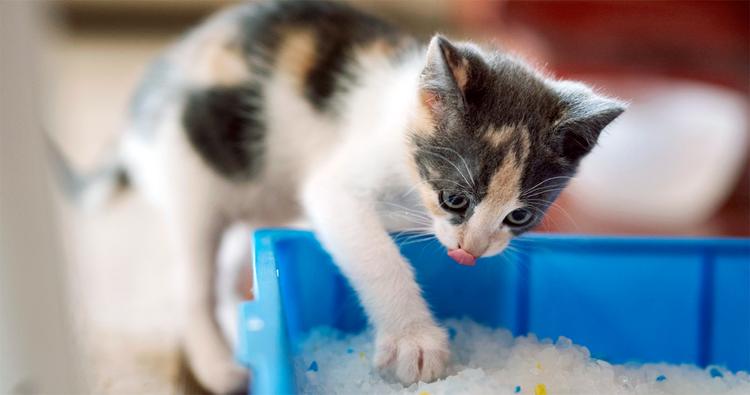6 Things to Consider When Choosing a Vet for Your Cat
Here are a few tips to help you pick the right vet.
Here are a few tips to help you pick the right vet.
by Katie Koschalk, | February 21, 2024

AzmanJaka / iStock
Choosing the right veterinarian for your newly adopted cat might not be as fun as picking out a new catnip toy or cat condo, but it is a crucial decision (no pressure).
During your quest for a reliable and compassionate vet, it’s important to consider factors, such as experience with cats, recommendations from fellow pet parents, and the clinic’s facilities. A vet who understands the unique needs of cats and fosters a comfortable environment can contribute significantly to your cat’s health and happiness.
So, how exactly do you find a top-notch vet for your kitty? Here, we cover what factors to consider, what questions to ask, and what to expect from your chosen vet.
Ideally, your cat should have their first vet visit within the first couple of weeks following adoption. The initial check-up establishes a baseline for their health and ensures they’re free from diseases and viruses. This is especially important if you have other pets in your household, as it helps safeguard against the transmission of illnesses.
The timing of the first vet visit may vary slightly if your cat needs a longer adjustment period following adoption or if they’re due to the vet sooner for a vaccination or other health issue.
After the initial visit, plan on taking your cat to the vet for a check-up at least once a year. Some cats, such as kittens completing their vaccination schedule, seniors, and those with existing health conditions or special needs, may require more frequent visits.
Between visits, be on the lookout for any changes in your cat’s appearance or behavior. This includes things like:
New lumps or wounds
Not wanting to play, hiding, or low energy
Lack of appetite, vomiting, constipation, or diarrhea
Unkempt fur, pale gums, weight loss, or weight gain
Scratching more than usual
If you notice anything abnormal, it’s time for a vet visit.
Finding a good local vet is best done by following this three-step approach:
Ask for recommendations: Old-fashioned word-of-mouth is the best starting point. Seek recommendations from friends, family members, neighbors (in-person or via the app Nextdoor), co-workers, or the shelter or rescue organization you adopted your cat from. Their personal experiences can provide valuable insights into the quality of care offered.
Consult online resources: Once you’ve gathered recommendations, use online resources to research the top contenders. Google each clinic to see if any red flags pop up, explore their websites and social media pages, and read reviews on reputable platforms, such as Yelp and Google.
Call and/or visit the clinics: Contact the veterinary clinics on your list to further assess their suitability for your cat’s care. You can even schedule a tour of your top contenders. You’ll want to ask questions about their services, facilities, staff, and payment options. (More on this below.)
Pro tip: Choose your veterinarian before you bring your new kitty home. If you take this proactive approach, this means you have a plan in place should any unforeseen health issues or accidents occur soon after adoption. It also prevents a delay in scheduling that all-important first wellness visit.
When researching and assessing clinics to see if they’re the right fit for your pet, you’ll need to take a look at a few things. Here are a few factors to consider when choosing a veterinarian:
The vet you choose should have convenient operating hours that align with your schedule. For example, if you work a 9-to-5 job Monday through Friday and struggle to take time off, it’s best to pick a clinic with weekend availability, if you can. If your clinic isn’t open on the weekends, they can probably refer you to an emergency clinic with more available hours, should you need to see a vet immediately on a weekend.
The vet’s location should be easily accessible from your home — ideally 15 minutes or less away. Having your vet nearby means you can swiftly access medical assistance for your cat when needed.
Plus, cats often find trips to the vet stressful, and some may become anxious or agitated during the journey (cue the guttural howls). Minimizing travel time makes the overall experience less stressful for your kitty. This can be particularly important if your cat has a history of anxiety or discomfort during car rides.
Oh, and don’t forget to scope out the clinic’s parking situation. Nobody wants to look for street parking for half an hour with a howling cat in tow.
The quality of a practice’s facilities should rank high on your list of considerations.
Ask the clinics if diagnostic tests like X-rays, blood work, and ultrasounds are done in-house or referred offsite. What about surgeries? Having in-house access to these resources enables the vet to diagnose and treat various conditions with precision and efficiency — and saves you the headache of having to transport your cat to other locations.
Your chosen clinic should also have a clean, organized, and well-maintained environment. This is a good sign that things will run efficiently and effectively.
The expertise, attitude, and dedication of the vet staff are critical factors in ensuring your cat receives the highest level of care and comfort during every visit.
Reviews from other cat parents are often helpful in gaining insight into the quality of care provided by a veterinary practice. Positive feedback regarding the staff’s professionalism, empathy, and effectiveness in addressing cat-related concerns can reinforce your confidence in their ability to meet your cat’s healthcare needs.
It can also be helpful to call the clinics directly and ask questions about the staff, including:
How many vets, vet techs, and vet assistants are part of the team? Having more staff, particularly vets, might mean the clinic has more appointment availability.
Will I see the same vet every time? In some practices, especially larger ones, you might not receive care from the same vet each visit. At others, you’ll have a designated vet. Consider what’s most important to you.
How much experience does your staff have with cats? Some veterinary clinics specialize in feline care exclusively, while others cater to both dogs and cats or dogs only. While choosing a feline-only practice isn’t necessary, it can provide an added layer of assurance for cat parents.
How does your team handle anxious cats? Some clinics are Fear Free Certified®, which means that staff uses anti-fear protocols to help pets feel as calm and comfortable as possible during their visits.
Like any other pets, cats can experience sudden health crises or accidents that require immediate attention. It could be an injury, severe illness, or unexpected complications from a treatment. In these situations, every moment counts, so it’s incredibly important to get your kitty to a vet immediately.
Ask the clinics which emergency services are offered on-site, and to which facility you’ll be referred if emergency care is not available. Also, ask how available the vets are to answer questions outside regular hours.
Affordable and flexible payment options can make veterinary care more manageable. To ensure transparency in financial matters, ask about payment plans, options for low-income assistance, insurance acceptance, and cost estimates for various services.
You can also ask if they accept Care Credit, which is a credit card that can be used for veterinary care.
At your cat’s first vet visit, you can expect the vet to perform a comprehensive physical examination of your cat. They’ll assess your cat’s overall health, discuss their medical history, and establish a baseline for future care. Depending on your cat’s age and health, they may also give them vaccinations or other preventive health treatments.
The cost of a veterinary visit for a cat can vary depending on factors, such as location, the specific services required, and your insurance coverage. On average, a routine check-up costs between $50 and $100, excluding any additional services or treatments.
The frequency of vet visits can vary based on your cat’s age and health. Kittens typically require vaccine appointments at three or four-week intervals until they reach 16 weeks of age — and they’ll need a spay or neuter appointment between two and five months old. Adult cats should have annual wellness visits. Senior cats or those with pre-existing conditions may need to visit the vet twice a year or more. It’s essential to consult with your vet to establish a suitable schedule for your cat’s specific needs.
Ready to welcome a new cat into your home? Use our handy search tool to find a cat today.
Impact of the Owner-Pet and Client-Veterinarian Bond on the Care That Pets Receive

Katie Koschalk is a freelance writer based in Northern California. Fusing her love and knowledge of animals with her journalism degree and years of professional writing, Katie is dedicated to improving the lives of pets and their caretakers by sharing helpful and accurate information. When she’s not at her desk, you can find her exploring trails with her Aussie, Hunter, cooking plant-based meals, and talking to her two cats, Jax and Sadie, in really ridiculous voices.

Adoption Advice

Adoption Advice

Adoption Advice

Behavior & Training
Is your cat refusing to use their litter box? Explore these tactics to address and resolve this issue.

Adoption Advice
Wondering when to get your pet spayed/neutered? Learn more about the process and the optimal age to get your pet fixed.

Adoption Advice
Considering renting with pets? Read more to learn about renter policies and how to navigate them.

Adoption Advice
Numerous pets are presented as Christmas gifts, yet this seemingly innocent gesture can actually have adverse effects on a pet

Adoption Advice
It’s a big decision, so check these boxes before you sign on the dotted line.

Shelters & Rescue

Foster & Volunteer
Thinking about fostering a cat? Here are 6 things you should consider before making the decision.

Adoption Advice
Are you wondering which type of cat will match your brand of human personality? Read on for some helpful advice.

Behavior & Training